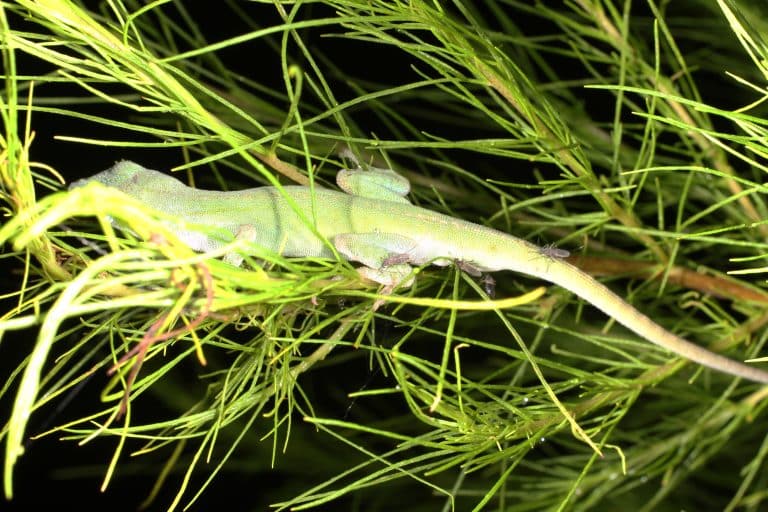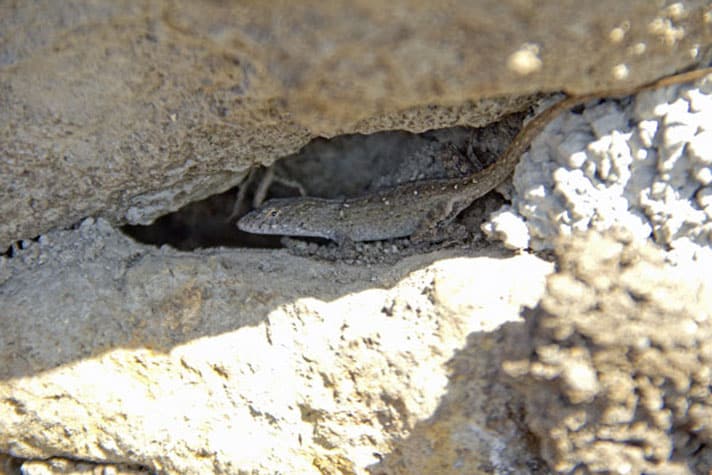When a mosquito bites a brown anole, it doesn't bite a bird, mammal or human.
The invasive brown anole (Anolis sagrei) in Florida may have been protecting humans from mosquito borne diseases as once the insect bites a brown anole, it no longer needs to bite humans. But that may be changing as another invasive reptile, the Peter’s rock agama (Agama picticauda) reduces the population of the brown anole.
This shift in the brown anole population to a larger and more prevalent Peter’s rock agama population may cause mosquito-borne diseases to become more prevalent in humans, according to researchers with the University of Florida/IFAS Florida Medical Entomology Laboratory (FMEL). Mosquitos don’t bite Peter’s rock agamas as they sleep in areas where the mosquitos won’t go.
“This battle over Florida territory by two lizard species may seem minor, given the myriad of problems that Florida faces from other invaders such as Burmese pythons,” Nathan Burkett-Cadena, associate professor at the UF/IFAS Florida Medical Entomology Laboratory (FMEL) said in a blogpost on the University of Florida/FMEL website. “However, this reptile rumpus could have implications for public health.”

The mosquito Culex.erraticus biting a brown anole in Florida. Photo by Nathan Burkett-Cadena, associate professor at the UF/IFAS Florida Medical Entomology Laboratory
Scientists will conduct a one year study on how the lizards are influencing mosquito borne diseases such as West Nile virus, St. Louis encephalitis and Easter Equine encephalitis are spread. The study is called “Invasive lizard-mediated risk of mosquito-borne pathogen transmission,” and is one of seven funded with a $350,000 grant from the university’s Invasion Science Research Institute.
Researchers Find 20 Million-Year-Old Anole Forefoot Preserved In Amber
Cuban Brown Anole No Longer Evolving, Scientists Say
“It’s possible that brown anole lizards have been unwittingly and unintentionally protecting us from West Nile virus and some other mosquito-transmitted diseases,” said Burkett-Cadena. Burkett-Cadena is the principal investigator of the study. “Any time a mosquito bites a lizard, it doesn’t bite a bird or a human. This could result in fewer cases of mosquito-borne disease, because birds are natural hosts of some dangerous mosquito-transmitted viruses.”



